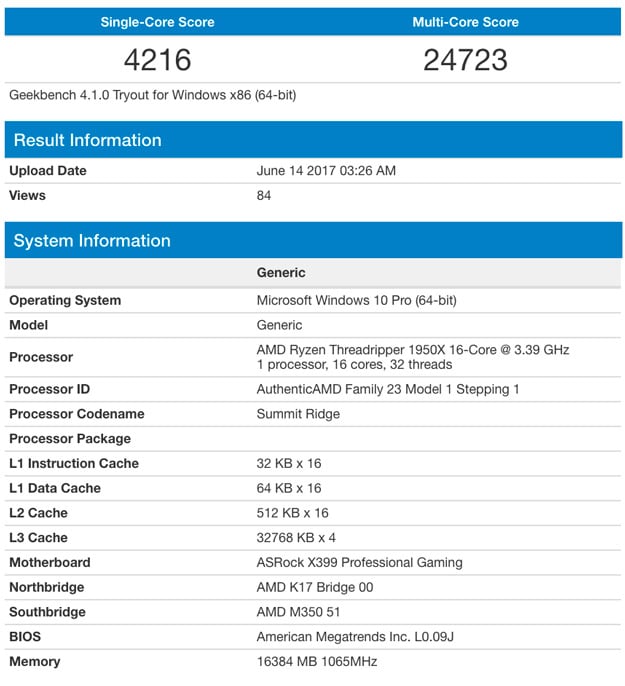AMD Ryzen Threadripper 1950X 16-Core CPU Benchmarks Leak With ASRock X399 Motherboard In Tow
Today we’re getting an early look at the performance potential of the range-topping Ryzen Threadripper 1950X, which according to Geekbench has a base clock of 3.4GHz, 16 cores and 32 threads. This particular processor was teamed up with 16GB of DDR4 memory and an ASRock X399 Professional Gaming Motherboard.
Looking at the performance figures below, the Ryzen Threadripper 1950X appears to be off to a promising start, putting up single-core and multi-core scores of 4216 and 24723 respectively in Geekbench 4.1.0:

For comparison, here’s what the Ryzen 7 1800X scores on the same benchmark:

Despite having half the cores and half the threads of the Threadripper chip, the Ryzen 7 1800X is actually not too far behind in single- and multi-core performance. And just to throw another processor into the mix, here is how the 16-core, 32-thread Xeon E5-2697A V4 stacks up:

The Ryzen Threadripper 1950X handily outpaces the Xeon chip in the single-core score, but comes up short on multi-core performance. We have to take into account that these are early performance figures on a platform that is obviously not fully optimized yet and in an unreleased status. Motherboard manufacturers are probably still tweaking their boards ahead of launch and AMD surely has work to do in the coming weeks to extract even more performance from the Ryzen Threadripper family. As always, take these early scores with a grain of salt.
If you recall, some of the early benchmarks for the Ryzen 7 series were a bit disappointing with regards to gaming performance, but AMD has addressed lingering issues with microcode updates and developers are working to fully support the new Zen architecture with their software.


